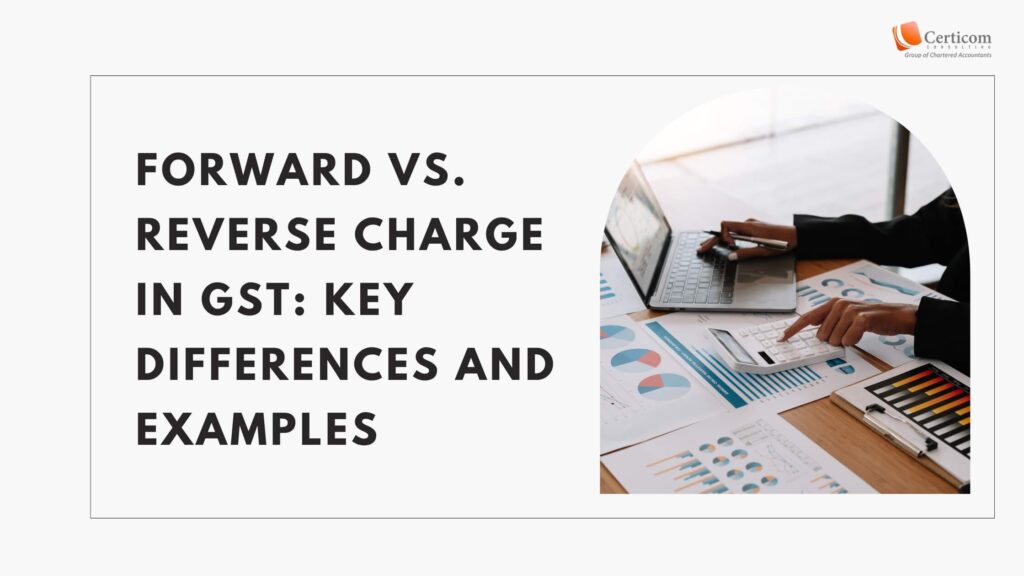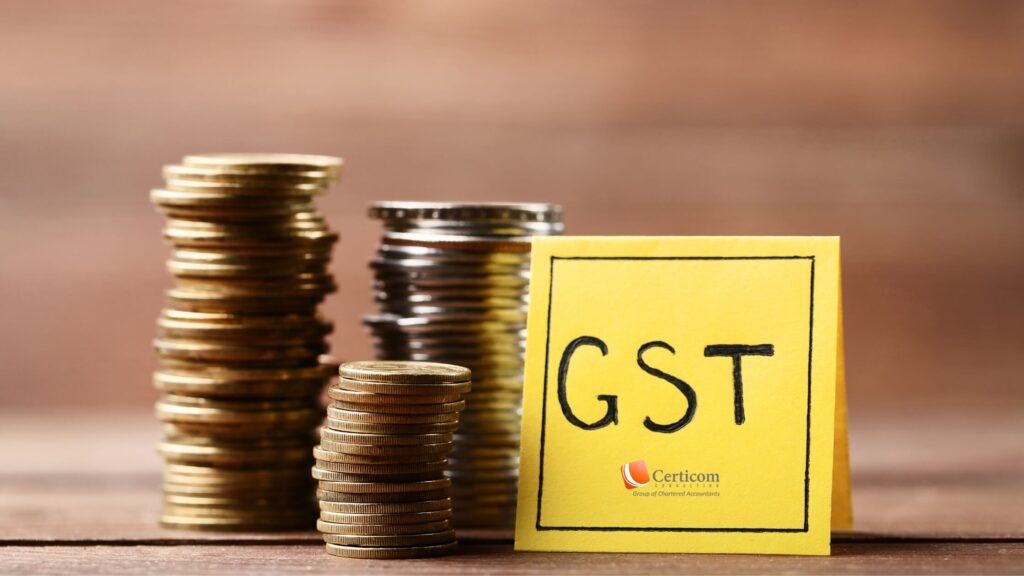Forward vs. Reverse Charge in GST: Key Differences and Examples

The Goods and Services Tax (GST) has reshaped indirect taxation by creating a unified tax structure for goods and services. Within this structure, two mechanisms are pivotal for managing tax liabilities: the Forward Charge Mechanism (FCM) and the Reverse Charge Mechanism (RCM). Each serves a distinct purpose, with FCM being the conventional approach and RCM applying in specific cases to encourage compliance.
What is the Forward Charge Mechanism (FCM)?
Under the Forward Charge Mechanism (FCM), the responsibility for collecting and remitting GST lies with the supplier. The supplier adds GST to the sale price, collects it from the buyer, and then remits the amount to the government. This is the typical setup for most transactions.

Example of FCM
Imagine a retail store selling a television for ₹40,000, where GST is applicable at 18%. Here’s how the transaction breaks down:
- Sale Price: ₹40,000
- GST (18%): ₹7,200
- Total Amount Paid by Customer: ₹47,200
The retail store collects the GST from the customer and later remits it to the government.
What is the Reverse Charge Mechanism (RCM)?
With the Reverse Charge Mechanism (RCM), the GST liability shifts from the supplier to the recipient of the goods or services. This mechanism is commonly used when dealing with unregistered suppliers or specific categories of goods and services. The aim is to ensure compliance, especially in transactions involving unregistered suppliers.
Example of RCM
Consider a company hiring a freelance consultant (unregistered) for a project, with the consultant charging ₹30,000. Under RCM, the company, not the consultant, is responsible for paying GST:
- Service Fee: ₹30,000
- GST (18%): ₹5,400 (paid by the company)
- Total Cost to Company: ₹35,400
Here, the company pays ₹5,400 directly to the government instead of through the consultant.

Comparison of Forward Charge and Reverse Charge Mechanisms
| Feature | Forward Charge Mechanism (FCM) | Reverse Charge Mechanism (RCM) |
|---|---|---|
| Liability to Pay GST | Supplier collects and remits GST | Recipient remits GST |
| Applicability | General sales of goods/services | Specific cases (e.g., unregistered suppliers) |
| Example Scenario | Retail sale of products | Consulting services from unregistered suppliers |
| GST Collection | Collected by supplier at the sale point | Paid by recipient directly to the government |
| Impact on Cash Flow | Supplier manages cash flow | Recipient must manage GST payment upfront |
| Input Tax Credit (ITC) | Supplier can claim ITC on inputs | Recipient claims ITC after paying GST |
| Compliance Requirements | Supplier files GST returns | Recipient files RCM transactions |
Managing GST Obligations with FCM and RCM
Both FCM and RCM are essential components of the GST framework, addressing different aspects of taxation. FCM is the default method for most transactions, while RCM targets specific situations to strengthen compliance and ensure tax collection in cases involving unregistered suppliers.
Understanding these mechanisms is crucial for businesses to manage GST obligations smoothly, optimize cash flow, and adhere to compliance requirements.
Related Post
Claiming Input Tax Credit (ITC) under GST: Essential Documents and Compliance Checklist
Monthly GST Filing Mastery: Streamlining Compliance for Bangalore Businesses
Book A One To One Consultation Now For FREE
How can we help? *




